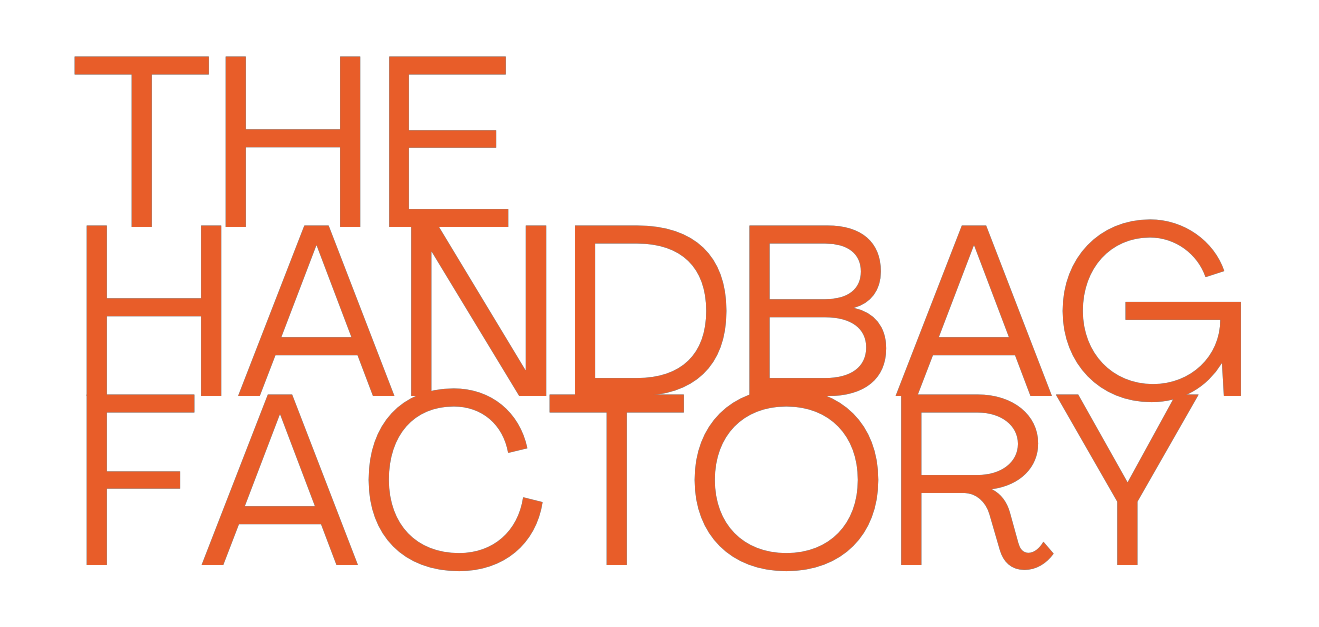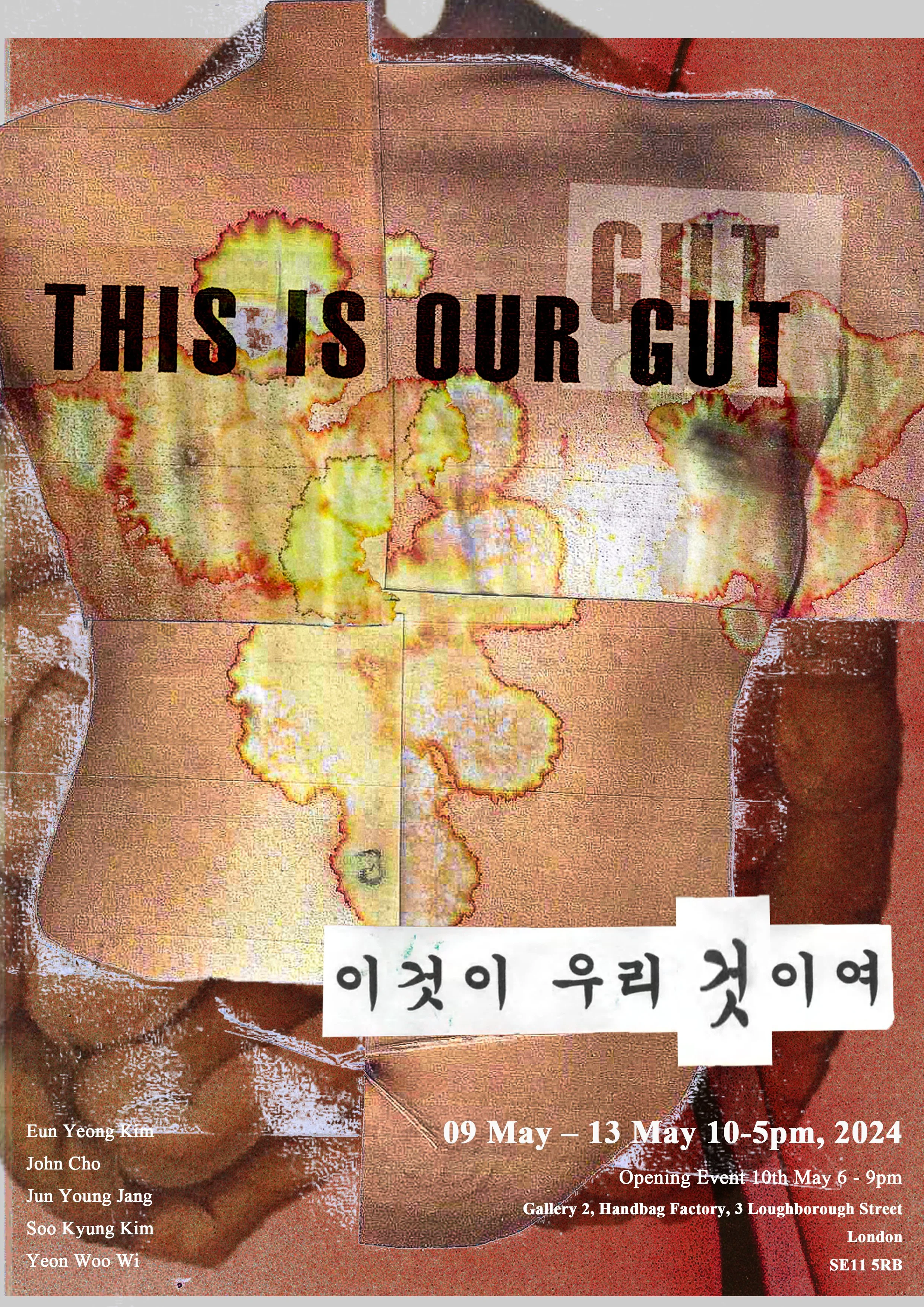Thursday 9th - Monday13th May
Opening hours: 10 am - 5pm
Gallery 2 at The Handbag Factory, 3 Loughborough Street, London SE11 5RB
This Is Our Gut / 이것이 우리 것이여
The first group exhibition of The Dependent Group, [This Is Our Gut/이것이 우리 것이여], is a place for diagnosing and reflecting on Korean-ness from various angles.
Since the liberalisation of studying abroad in 1981, first-generation Koreans studying abroad, called Yu Hak Saeng, have achieved successes by adapting various Western arts into Korean styles. However, (1) since the 2008 global financial crisis, contemporary art has revealed its limitations as its neo-liberal direction compromised innovation. Consequently, the meaning of studying abroad rapidly transformed into a course for materialistic pursuits.
What is the self-portrait of Korean international students living in the year 2024? Within the Korean middle class worldview , we have become like ghosts that merely exist temporarily to obtain a degree. (2) With the spread of the Korean Wave, the skin of Korean-ness generated by globalisation has been updated into a passive and closed worldview, forming a Colonialism of the Inner Mind. We have (3) become hollow beings, unable to leave any meaningful statements or marks behind.
In efforts to break away from such a constraining worldview, The Dependent Group has been engaging in a variety of workshops - including mind mapping, poetry writing, exhibition visits, art theory studies, and book readings. The five members have also collaborated on diverse art projects centred around discourses of identity, tradition, feminism and multiculturalism, alongside their individual works. [This Is Our Gut/이것이 우리 것이여] serves as both an archive and an exhibition summarising six months of these collective activities.
The term “Gut” in the title holds dual meaning in Korean - it can signify both the physical digestive organ, and the more abstract notion of an innate “Thing”. Just as the gut within the body is both discreet and overt, every element comprising this exhibition embodies The Dependent Group’s Gut/Thing - their shared sensibilities, creative expressions, and evolving understanding of selfhood and community. We expose the thin skin constituting Korean-ness through self-disclosure and prepare a step forward for the future.
(1) Yu Hak Saeng : Students studying abroad. This term has existed since the North-South States period 1 (698–926 CE). During that time, it is said that Korean ancestors went to study in the Tang dynasty. The aspiration to support their families after achieving success through overseas studies. While the form of this has changed slightly over time, the word Yu Hak Saeng is still deeply rooted even in the year 2024.
(2) Korean middle class worldview : The term "middle class" in Korea is a complex word entangled with various historical contexts. After the IMF crisis, as the economy became difficult, a national sentiment of "we're all fighting for survival" or "we're all petit bourgeois" emerged. This national sentiment created a blind pursuit of "economic success" as the most important value, above all others. This direction has now evolved into endless labeling and hierarchical classification based on residential area, type of housing, car model, children's private academies, etc. There is a prevalent sentiment that treats life forms that do not reach a certain standard as "losers." The middle-class worldview has also significantly influenced Korea's recent phenomenon of extremely low birth rates.
(3) Colonialism of the Inner Mind - This is a term used by the Korean critic ChungWoo Lee. It refers to the attitude in various domains that "the things of advanced western countries are better." This attitude ingrained in international students makes their minds more passive and sometimes even creates a meaningless sense of privilege. Representative examples of the "colonialism of the inner mind" include the desire to appear favourable to the mainstream race, the craving for their recognition, the tendency to avoid criticism, the pride in having overseas art school diplomas, and the indifference towards minorities.
About Group Member
Eun Yeong Kim - Majored in English Language and Literature in Korea. After graduation, worked as a designer at the wholesale market in Seoul, developing an interest in fashion. Studied womenswear at the London College of Fashion and is currently exploring the possibilities of fashion as an art form.
John Cho - Moved to the UK as a young child. Developed a passion for storytelling and an interest in animation and popular culture. Graduated with a degree in Illustration Animation from Kingston University. Currently working as an in-house designer at a company in London.
Jun Young Jang - Dropped out of an industrial design major in Korea. After military service, developed an interest in fine arts and chose to study in the UK. Graduated with a BA in Fine Art: Painting from UAL Camberwell. Currently pursuing a MA Fine Art degree at UAL Chelsea.
Soo Kyung Kim - Majored in Eastern Painting in Korea. Chose to study in the UK to explore various forms of art beyond the traditional framework of Eastern painting. Currently pursuing a MA Fine Art degree at UAL Chelsea.
Yeon Woo Wi - Majored in fine arts in Korea. Chose to study in the UK to experience art in a different environment. Graduated with a BA in Fine Art: Painting from UAL Camberwell. Currently working as a teaching assistant at a secondary school in London.
About The Dependent Group
The Dependent Group is a study group influenced by The Independent Group, pioneers of British pop art.
Hal Foster describes The Independent Group like this:
The Independent Group was less a tight artistic movement
than a multifarious study group.
Art since 1900. p 447. HF
The Dependent Group attempts to draw a clearer map of the identity and problematics of contemporary Koreans by awakening and overlapping the 'perspectives on the world' of Korean students studying abroad. Furthermore, it aims to clearly recognise the global cultural and artistic environment.
Since the 5th Republic regime under the Chun Doo-hwan dictatorship introduced measures to liberalise studying abroad in 1981, many artists who studied overseas have achieved great and small successes by adapting western perspectives to Korea. However, in the prolonged neoliberal worldview following the 2008 global financial crisis, and the art world's collusion with this trend, art students who studied abroad, as both beneficiaries and victims of the neoliberal education industry, have been 'consuming' art while neglecting the core values of contemporary art.
Cecilia Alemani successfully revived the crisis-stricken Venice Biennale in 2023 by putting feminism at the core agenda of 'Milk of Dreams'. And keeping up with this innovative trend, Adriano Pedrosa refused to include artists from so-called 'prestigious' art schools in the 2024 Venice Biennale 'Foreigners Everywhere'. What does this signify?
The world is certainly changing. The Dependent Group seeks to re-examine the contemporary foundation we stand on for a step toward the future.

